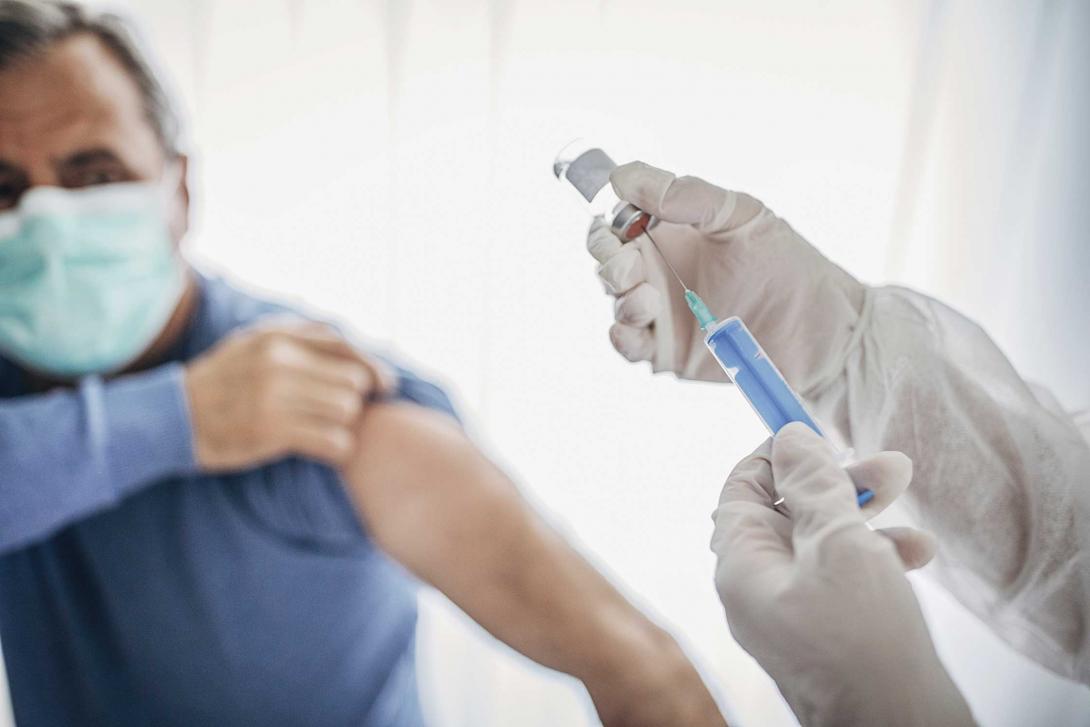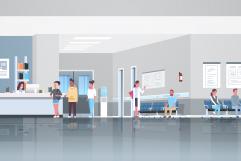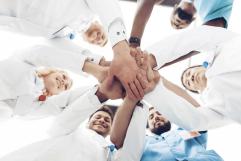
“Technical advances must be a means for humanising, not an end”
The new technological advances must be accompanied by consideration from the ethical point of view.
Within the strengths that have blossomed during the pandemic, there are two that are highly relevant, according to Doctor Fernando Bandrés. “One is the response of the healthcare professionals, who have taken the word professionalism to a completely new level.” The other has been the technological response. “If you compare the case of the Coronavirus SARS-CoV-2 with the HIV era, in a few weeks we had obtained its genome, along with some diagnosis tests and technologies from the care point of view in the ICUs.” And if something has clearly come out of this pandemic it is “a technological strength that is going to allow us to create the healthcare of the 21st century.”
And although “technologies is a verb that has to be conjugated”, the doctor indicates, applying the technology in care homes for the elderly, consulting rooms or care in the home will improve healthcare. “There are those who think that technologisation just means applying the technology. This is not the case. The technical advances must be a means to humanise healthcare even more, not just an end,” Bandrés affirms, quoting the Argentinean physicist, scientific philosopher and humanist, Mario Bunge who, in the 1970s restored the concept of techno-ethics, a philosophical discipline that deals with the moral valuation of the ends and uses of science and technology. “Until recently, science was scientific observation and experimentation, but now we have access to new scientific information. This means a new cultural concept which, if we don’t look at it in greater depth from the ethical point of view, we will turn it into the use and abuse of a specific technique,” he criticises.
Experiential anaemia
The doctors of the future are much better prepared that the current ones, but “they are lacking something that I have: years. They have experiential anaemia at a time when everything is happening at great speed. After the pandemic, we will see how to organise the human potential, with a greater inter-professional collaboration in technological use.” For this reason, “a renewal of the values is needed,” Doctor Bandrés adds.
The challenge of genetics
In 2000, genetics published the knowledge of the human genome. “There were important expectations, but now we are pulling back with regard to gene therapy because talking about predictive medicine just in genetic terms is a mistake,” Dr. Fernando Bandrés affirms. “We talk about personalized medicine, but a person is not their genome, but rather a biography. For this reason I think that the genome has been turned into a myth,” he acknowledges.
In 2015 the European Union warned that personalised medicine is not based on the genome, but rather on the patient’s the lifestyle habits or social environment. “It is sum of many things and genetics must be put in its place, because it has a great future, but it means important ethical challenges,” the expert explains, asking: “Should we do everything that we could? I think that, at present, no, we shouldn’t unless a precautionary criteria and a principle of prudent analysis, but also of relevance are used,” he concludes.
Inter-professional collaboration, necessary
“Technoscience is no longer the property of doctors, scientists and researchers, because managers, politicians and investors must enter the dialogue to determine whether a technology is relevant, fair and it improves the quality of life,” Dr. Bandrés affirms. And the fact is that he considers that a very high level of complexity has been reached by the system “and the pandemic has made it emerge at an incredible speed.” Since March, 2020, “we have had to make decisions from one day to the next, but when this period has passed, we will see that we have achieved a considerable technological capacity that has allowed us a new look towards the future with a total change in healthcare.” Because “they will change the management models, the type of service, the cost analysis, the relevance of using technology or the citizens’ healthcare culture. Not in a year or two, but it is already in operation now”.
‘Neo-humanising’ the medicine of the future
For Doctor Bandrés. “rehumanising is a word that sounds bad because we are not in a state of dehumanisation. I would talk about the need for ‘neo-humanisation’.” And how do we do this with high technology and digitalisation? “Now a family practitioner sees a patient in three minutes. When I have a consultation, with digitalisation I have already read the patient’s clinical notes and I can talk to him for ten minutes thanks to the screen, or find out more about him because, for example, I have a software programme that evaluates his tone of voice or I can see signs of pain on his face.”
According to Bandrés, “Technology will not cancel out the clinical relationship with patients; quite the contrary, it will improve it and instead of seeing the patient four times, three of them for bureaucratic reasons, I will be able to spend more time with the patient over the internet. And in ethical terms, this clinical relationship model involves a compulsory idea of bringing out the principle of honesty.”
The right to die or palliative care
Last December, the Spanish Congress passed the organic draft law on the regulation of euthanasia, which turns the right to die into a service given by the National Health System. The General Council of Official Colleges of Doctors made an announcement on the subject affirming that this means guaranteeing by law the fact that euthanasia is a medical act, which “is against our Medical Deontological Code and contradicts the positions of the World Medical Association.” They also report that “at no time has our official appearance been requested.”
For Bandrés, “it has been carried out too fast. Firstly, I would have promoted palliative care a great deal more. I am starting from the premise that the vast majority of people do not want to die, but rather to live in another way when the situation is irreversible. I accept that there might be special cases, but the laws are made for a majority,” the doctor affirms.
Additionally, Bandrés states “I would like to know the opinion of the jurists regarding the right to die and that of delegating the responsibility to a healthcare worker. I would ask for a modification of the rule to ensure that the politician who voted in favour and a jurist should have to be alongside me when making the decision. And this is happening in a setting in which the healthcare workers have been exercising a defensive state of medicine,” he concludes. •


